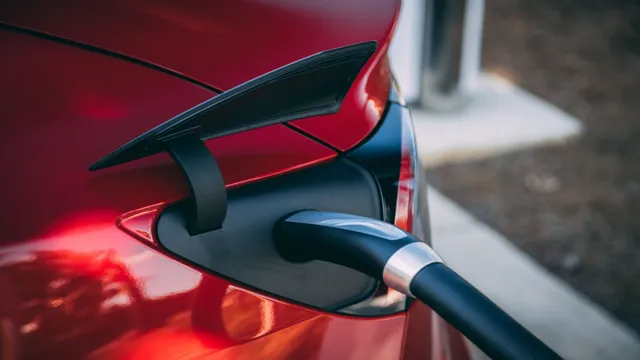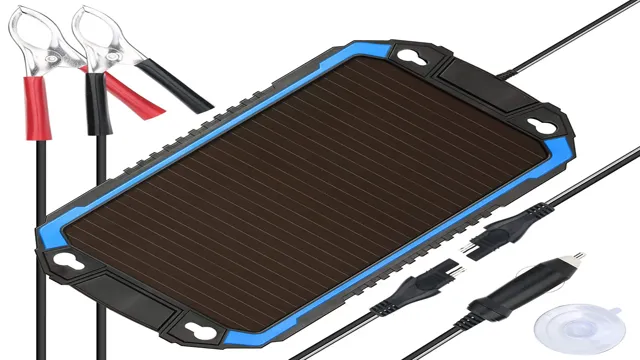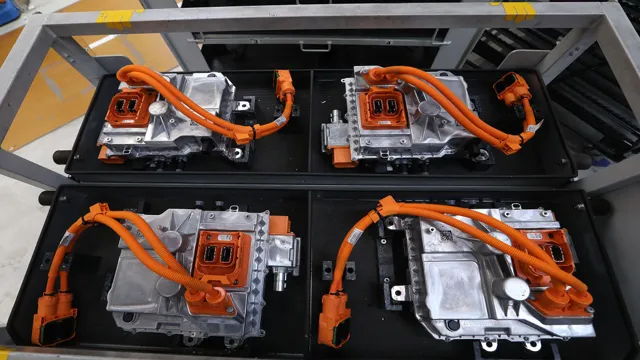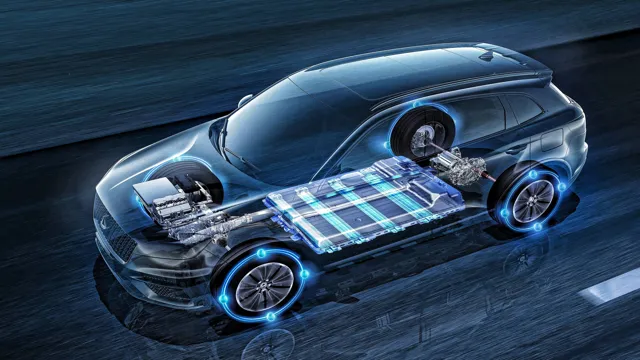The Dark Side of Electric Cars: How Fossil Fuel Generated Batteries Contribute to Pollution
Have you ever considered the environmental impact of electric cars? While they are undoubtedly a cleaner mode of transportation compared to traditional gasoline vehicles, there’s a hidden problem that often gets overlooked: polluting electric car batteries. Electric car batteries are essential for powering these vehicles, but their production and disposal can have adverse environmental effects. The production process involves the extraction of minerals such as lithium, cobalt, and nickel, which require significant energy and water usage, as well as producing greenhouse gas emissions.
Additionally, the disposal of these batteries creates e-waste that can pollute the soil and water sources if not disposed of properly. While companies are searching for sustainable alternatives, such as recycling batteries, these initiatives are still in their early stages and require further development. As electric cars become more ubiquitous, the impact of their batteries on the environment needs to be taken more seriously.
Thus, it’s crucial to recognize the complexity of our transportation choices and consider the environmental impact of the products we use. Electric cars may seem like the solution to our carbon emissions problem, but the reality is that they too come with their environmental concerns.
Fossil Fuels Used in Battery Production
When it comes to electric car batteries, many people believe that they are completely environmentally friendly because they don’t emit any harmful gases from the tailpipe. However, what most people don’t realize is that the production of these batteries generates pollution because it relies on fossil fuel energy. When electric car batteries are manufactured, they require a significant amount of energy, and much of that energy is generated by burning coal, oil, and natural gas.
This means that even though electric vehicles have no tailpipe emissions, they still contribute to greenhouse gas emissions through the production of the batteries. So while electric cars might seem like a better option for the environment, it’s important to remember that the production of these cars has a significant impact on the environment as well.
Raw Materials & Manufacturing Process
Fossil fuels The production of batteries involves many raw materials and manufacturing processes that are critical to their functionality. Among these materials, fossil fuels play an important role in powering the manufacturing process. Fossil fuels are used to generate electricity that powers the plants where the battery components are made.
They are also used to power equipment such as trucks and machinery that transport and process the raw materials used in the manufacturing process. These fossil fuels include coal, oil, and natural gas. However, the manufacturing industry is becoming more conscious of environmental concerns, which has led to a shift towards renewable energy sources such as wind, solar and hydroelectric power.
The use of these renewable energy sources can help reduce the carbon footprint of battery production and make it a more sustainable process.
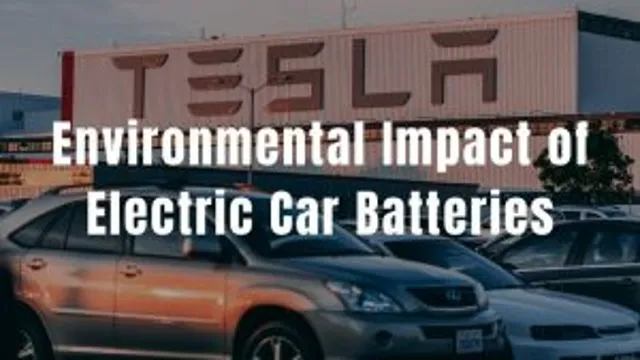
Impact on the Environment & Human Health
The production of batteries used in electric vehicles is a remarkable advancement in the automotive industry. However, it is essential to note the environmental and health impacts of fossil fuels used in battery manufacturing. Fossil fuels such as coal and oil are crucial in the production of lithium-ion batteries as they are used to power heavy machinery and vehicles that transport raw materials to battery factories.
These fossil fuels emit greenhouse gases such as carbon dioxide, contributing significantly to climate change. Additionally, exposure to fossil fuels has been linked to various human health concerns such as respiratory problems, allergies, and chronic diseases. It is imperative to adopt cleaner and sustainable sources of energy in battery manufacturing to minimize these negative impacts and promote sustainable development.
Consequences of Battery Pollution
Electric car batteries are often touted as a solution to reducing air pollution and combating climate change. However, it’s important to recognize that electric car batteries generated by burning fossil fuels produce a significant amount of pollution themselves. For example, the mining and extraction of metals and minerals used in battery production can release harmful pollutants into the air and water.
Additionally, the transportation of these materials and the manufacturing and disposal of the batteries can also contribute to pollution. While electric cars themselves produce zero emissions during operation, the environmental impact of their batteries cannot be ignored. It’s crucial for manufacturers to prioritize the use of renewable energy sources and sustainable practices in the production and disposal of electric car batteries to minimize their negative impact on the environment.
Air & Water Pollution
Battery pollution has become a major concern globally due to its adverse impact on both air and water quality. The manufacturing process of batteries involves the discharge of toxic chemicals such as lead, cadmium, and mercury, which can contaminate the soil and groundwater if not disposed of properly. When these batteries are discarded, they release toxic substances into the atmosphere and leach into the soil, which can cause serious health problems like cancer, birth defects, and respiratory diseases.
Moreover, the improper disposal of batteries in landfills leads to the generation of greenhouse gases that contribute to climate change. The consequences of battery pollution are far-reaching, affecting both human health and the environment. It is, therefore, imperative for individuals and industries to adopt eco-friendly practices in battery usage, storage, and disposal to mitigate the risks of battery pollution and preserve the planet for future generations.
Climate Change & Greenhouse Gas Emissions
Climate change is a significant issue that the world is currently facing, and it is chiefly driven by greenhouse gas emissions. One of the sources of these emissions is battery pollution. Batteries are ubiquitous in our daily lives, powering everything from our cellphones to our cars.
Unfortunately, the production and disposal of these batteries contribute to environmental degradation as they contain toxic chemicals such as lead, cadmium, and mercury. When these batteries end up in landfills, the toxic chemicals can leach into the soil and water, causing health problems. Moreover, the manufacturing process of batteries results in high amounts of greenhouse gas emissions.
Therefore, it is imperative to reduce our dependence on batteries and shift toward more sustainable energy sources. We must also adopt responsible disposal methods of batteries to minimize the adverse impacts of battery pollution on the environment and our overall health.
Land and Wildlife Destruction
Battery pollution can have serious consequences for both land and wildlife. When batteries are disposed of improperly, the chemicals they contain can seep into the soil and water, leading to contamination that affects plants and animals. Additionally, batteries that are thrown away can end up in landfills, where they may break open and release their toxic contents into the environment.
This can not only harm wildlife but also have negative impacts on human health. For example, if lithium batteries are not disposed of properly, they can explode and release their contents, causing fires and damage to property. It is important to properly dispose of batteries, either by recycling them or taking them to a hazardous waste facility, in order to minimize the negative impacts of battery pollution on the environment.
By doing so, we can help protect our land and wildlife for generations to come.
Solutions: Overcoming the Challenges
Electric car batteries generated by burning fossil fuels do pose a challenge when it comes to creating environmentally-friendly vehicles. However, there are solutions to overcoming this obstacle. One way to reduce the pollution caused by burning fossil fuels is to generate electricity from renewable sources such as wind or solar energy.
Furthermore, advancements in battery technology have made it possible to manufacture more efficient batteries that require fewer resources to produce. Additionally, recycling the batteries after they have been used is an important step in reducing waste and minimizing pollution. By using recycled materials to create new batteries, we can reduce the need for new resources and further minimize our impact on the environment.
While there are still challenges to overcome, these solutions present a promising future for creating sustainable electric vehicles that are better for both the environment and our health.
Investing in Clean Energy
Investing in clean energy comes with many challenges, but there are solutions available to overcome them. One of the biggest challenges is the initial cost of setting up a clean energy project. However, over time clean energy projects become more profitable as they save on traditional energy costs.
Additionally, government incentives and subsidies can help offset the initial costs of setting up such projects. Financiers also play a critical role in supporting clean energy investment by offering loans and financing options. Another challenge to investing in clean energy is the unpredictability of energy supply and demand.
This can be mitigated through the use of energy storage solutions, such as batteries, which can help ensure a reliable supply of energy when needed. Investing in clean energy is not just about profit but also about building a sustainable future. It is not only beneficial for the environment but also for society as it can create new job opportunities and reduce energy costs for communities.
Overall, the challenges faced by clean energy projects can be overcome by implementing innovative and practical solutions that benefit both investors and society as a whole.
Improving Battery Production Techniques
Improving Battery Production Techniques The demand for batteries is increasing rapidly due to their essential role in powering technology. However, the production process of batteries is facing several challenges that need to be addressed to meet the increasing demand. One of these challenges is the cost of producing batteries, which can be reduced by improving the production techniques.
One solution is to increase the automation of the production process, which can reduce labor costs and increase efficiency. Another solution is to use advanced materials that can increase the efficiency of the battery and decrease the amount of material required. For example, using graphene as a conductor can increase the conductivity of the battery, which can result in a longer lifespan.
Additionally, improving the recycling process of batteries can also reduce the cost of producing new batteries. By reusing the materials from old batteries, the production cost can be significantly reduced. These solutions can overcome the challenges faced in battery production and help meet the increasing demand for batteries in a cost-effective and efficient way.
Conclusion: A Balanced Approach
It seems that the idea of using electric car batteries as a solution for pollution has backfired, as the very process of generating them has resulted in even more pollution. It’s like trying to cure a headache by putting on a loud heavy metal concert – it may provide temporary relief, but ultimately it just causes more problems. So let’s hope that we can find more sustainable and eco-friendly ways to power our vehicles in the future, or else we’ll just end up stuck in a vicious cycle of dirty energy and dirty air.
After all, there’s no point driving a car that’s good for the environment if the energy used to power it is doing more harm than good. So let’s put our thinking caps on and come up with some truly innovative and clean energy solutions – we owe it to ourselves, and to our planet.
FAQs
How does the generation of electric car batteries impact the environment?
While electric car batteries themselves do not produce emissions, the generation of electricity that powers them may still be reliant on burning fossil fuels. This produces pollution and contributes to climate change.
How can we mitigate the environmental impact of electric car batteries?
One way to mitigate the impact is to use renewable energy sources, such as solar or wind power, to generate electricity for the batteries. Additionally, recycling and repurposing of used batteries can reduce waste and resource consumption.
Are there any alternatives to traditional electric car batteries that produce less pollution?
Yes, there are emerging technologies such as solid state batteries and fuel cells that could potentially reduce or eliminate the need for fossil fuel-derived power in the battery production process.
What is the current state of recycling electric car batteries?
While still in its early stages, initiatives to recycle electric car batteries are underway. This involves the careful disassembly of the battery components, separating the valuable materials such as lithium and cobalt, and repurposing them for other applications.
